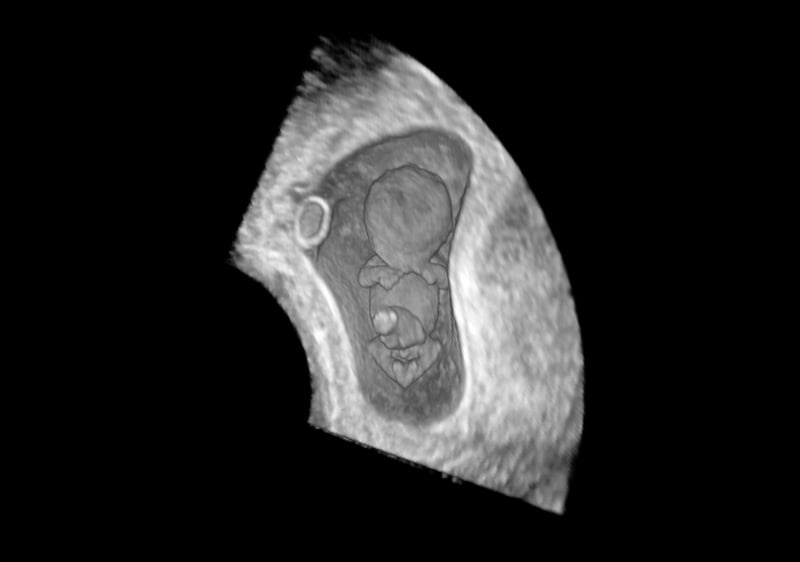Get Healthy!

- Denise Mann
- Posted March 27, 2023
New Clues to Early Miscarriage and How to Predict Them
Miscarriages are devastating and often seem to happen out of nowhere, but researchers may have found a new high-tech way to predict which pregnancies are likely to end in miscarriage and which ones are not.
The use of 3D ultrasound imaging with virtual reality technology can create a hologram of a developing embryo to see if it is maturing on schedule. This differs from measuring embryo size, which is routinely done during pregnancy.
Embryos in pregnancies that end in miscarriage take longer to develop than pregnancies that result in live births, explained study author Dr. Melek Rousian, an obstetrician-gynecologist at Erasmus University in Rotterdam, Netherlands.
The study, published March 26 in the journal Human Reproduction, does not provide clues about the potential cause of a miscarriage, but the technology may help identify at-risk pregnancies earlier and/or reassure future parents.
"Couples that have had more miscarriages might be very anxious about the condition of the embryo,"Rousian said. "If we were able to show that the development of their embryo is normal in these early stages of pregnancy, we might provide reassurance and comfort."
More research is needed to get to that point, she said.
For the study, the researchers tracked embryo development with 3D ultrasound imaging and virtual reality technology for 644 pregnant women from seven to 10 weeks after conception. They were followed for one year after delivery.
Of these, 33 pregnancies ended in miscarriage. An embryo is assigned what is known as a Carnegie stage number from 1 to 23 based on its external features during the first 10 weeks of pregnancy.
Embryos in pregnancies that ended in a miscarriage took four days longer to reach the final Carnegie stage than those that resulted in a healthy baby, the study showed.
The longer it takes for an embryo to develop, the more likely it is to result in a miscarriage, the study showed.
Pregnancies that ended in a miscarriage were also linked to a shorter embryo length from the top of the head (crown) to the bottom of the buttocks (rump), the study found.
The new findings held even after researchers controlled for other factors that could affect the risk of miscarriage, such as age, alcohol use, smoking and use of folic acid or other vitamin supplements during pregnancy.
Researchers did not have access to genetic testing after the miscarriages, so they did not know if the embryos had genetic abnormalities that could have caused the miscarriage.
While the new study doesn't aid in understanding of why miscarriages occur, the findings may be able to identify miscarriage risk earlier, said Dr. Ashley Wiltshire, who reviewed the findings.
"Many miscarriages are due to genetic abnormalities within the embryo,"said Wiltshire, a reproductive endocrinology and infertility specialist at Columbia University Fertility Center in New York City. "Since genetic testing was not included in this study, it's impossible to determine the correlation of genetic status to their findings regarding embryo development."
She suggested that women with a history of recurrent pregnancy loss have early and repeat ultrasounds during pregnancy.
But Wiltshire cautioned that even if the embryo is tracking late, it doesn't mean a miscarriage is inevitable.
"The rate of embryonic development seen on ultrasound may correlate with a higher risk of miscarriage; it does not confirm with 100% certainty that a miscarriage will happen,"Wiltshire said.
More information
The American College of Obstetricians and Gynecologists has more on early pregnancy loss.
SOURCES: M. Melek Rousian, MD, PhD, obstetrician-gynecologist, Erasmus University, Rotterdam, Netherlands; Ashley Wiltshire, MD, reproductive endocrinology and infertility specialist, Columbia University Fertility Center, New York City, Human Reproduction, March 26, 2023






